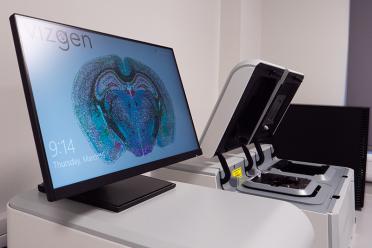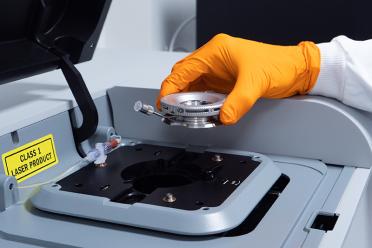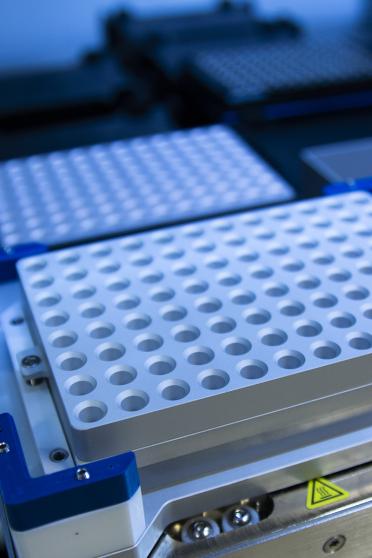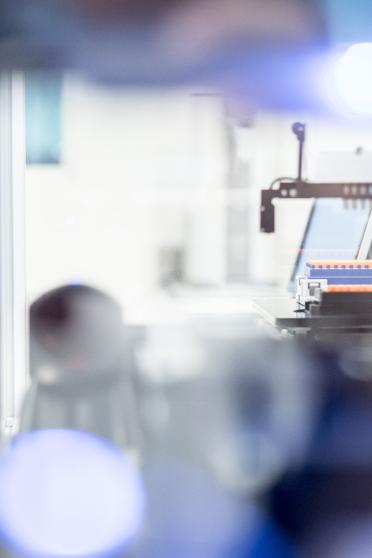
The Institute is the first site in the UK to purchase the platform and will be among the first in Europe planning to apply the platform to the study of both model and non-model organisms, including plants.
The system will help scientists at the Institute to answer fundamental research questions and also provide the UK bioscience community with access to this revolutionary technology for spatial analysis of gene expression.
The MERSCOPE - based on multiplexed error-robust fluorescence in situ hybridization, or MERFISH, developed in Professor Xiaowei Zhuang’s lab at Harvard - is the first commercially available platform to enable researchers to perform highly multiplexed, spatially resolved measurements of gene expression.
Dr Iain Macaulay, Technical Development Group Leader at the Earlham Institute, said:
“Single-cell sequencing has become a standard part of our workflows to investigate cellular heterogeneity in complex living systems, but in these experiments information about where cells are - and what other cells they have contact with - is lost.
“This platform allows us to measure the expression of hundreds of genes in situ with single-cell resolution, so we can investigate how different cell types are really organised within tissues. This has major applications throughout biology - from the study of human health and disease to the formation of developmental structures in plants.”




